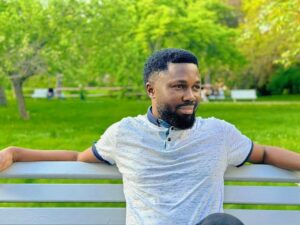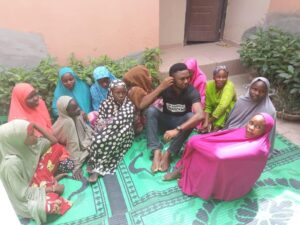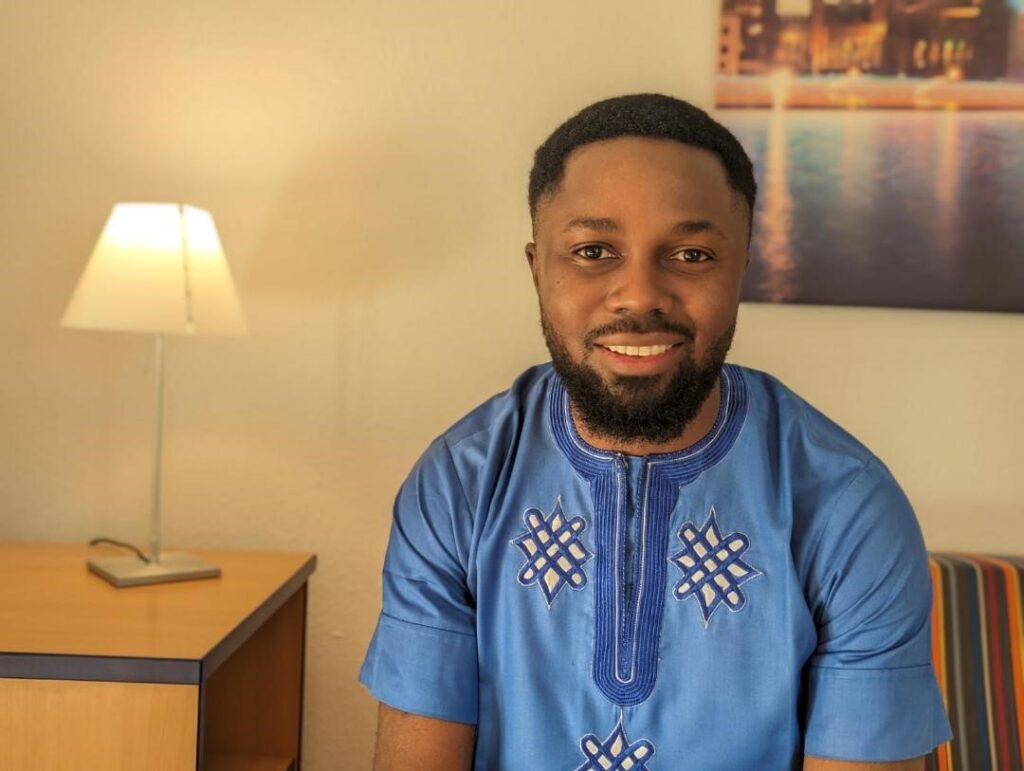Philip Obaji, Correspondent of the Daily Beast is multiple global awards and fellowships-winning investigative journalist. He is the inaugural recipient of the Jim Hoge Reporting Fellowship awarded by the International Center for Journalists (ICFJ) and one of the three finalists for the 2023 One World Media (OWM) International Journalist of the Year award.
In this online interview with Lekan Otufodunrin, Obaji who is currently attending the Berlin Fellowship Program on digital security in Germany, gives an insight into his media career and the secrets of his outstanding accomplishments.
Congratulations on your recent awards and fellowships. What will you say is the secret to your numerous accomplishments?
Thank you very much. I’d say that hard work, consistency and faith have led me very far in my work as a journalist. Since 2015, I’ve been reporting consistently on the activities and atrocities of jihadists and human traffickers in West and Central Africa. Last year, I started to focus a lot more on uncovering human rights abuses by the Russian Wagner Group which operates in a couple of countries in the two regions. So, it’s been eight years of consistent investigation and reporting on human rights violations by these groups of people.
From studying Marine Biology and doing other things not directly related to journalism, how did you become a journalist?
I started as a sports analyst on Cross River Broadcasting Corporation (CRBC) radio and TV services in the year 2000 during my final year in secondary school in Calabar where CRBC is located. Later, I became a sports presenter on both radio and TV but I quit in 2008 to focus on campaigning for education for children through the 1 GAME: Education Defeats Violence campaign which I initiated to encourage out-of-school children in rural communities in Cross River State to embrace free universal basic education.
The campaign later moved to Maiduguri in the northeast of Nigeria, as we sought to deprive Boko Haram of the chance to conscript kids by encouraging vulnerable children to enrol into school. During one of my trips to Maiduguri, I visited an old camp of Boko Haram that had been destroyed by the Nigerian military and took a look at schools that had been razed by the insurgent group. I then wrote an essay about my experience in Maiduguri and shared it on a number of social media platforms. An editor at The Daily Beast read the essay and was impressed, and she later reached out to me with an offer to become a contributor at the organization.

What have you had to do to enhance your journalism skills?
I read more books, reports, commentaries, arguments, analyses, opinion editorials, and feature stories. I also attend seminars, workshops and fellowships, not just to learn from other amazing journalists, but to gain as many contacts as possible.
What does it take to meet the international standards required for global fellowships and awards?
Every fellowship has its own requirements, but one thing is clear: you have to be seen as someone who has a good idea for a project to be considered for a fellowship anywhere in the world. Usually, fellowships are very competitive because there are very few slots to be competed for by some of the best journalists in the world. Sometimes, you could have a good idea for a project but you’re overlooked because those behind the program want the opposite gender from that region or someone from a religious or ethnic minority. But not giving up is very important to success. If you don’t get one, try another, and keep trying until something comes out of it.
As for awards, no one is genuinely awarded for work that isn’t so outstanding. So, if you are awarded a prize in investigative journalism, for example, you must have reported on an issue that uncovered something incredible that probably led to change whether in executive or parliamentary action, or corporate policy. It’s the same in other categories of awards. You must be exceptional in your work to be considered for a prize.
What is your response to the reaction below to a story about your recent award?
“Congratulations ahead to this very enterprising journalist.
ON THE FLIP SIDE…
It is highly unlikely that Obaji is based in Nigeria and he is investigating probable assassinations and disruptions across West Africa by Wagner mercenaries from Russia.
Why don’t we have home-based (or foreign-based homes who are) investigative journalists doing award-winning exposé on Boko Haram, etc?
We only read rumours at best🤔”
I have done a number of investigative stories on Boko Haram that got me nominated for international awards in the past. These stories were very difficult to pursue and I almost got killed by militants in Borno while working on them. But it’s usually very difficult delving into the heart of jihadist groups because anyone who attempts to go close is on a suicide mission. Other non-state armed actors can sometimes be receptive to journalists especially when they believe that reporters can help put out their grievances, but not jihadist groups like Boko Haram which is very much against Western inclinations.
READ ALSO: Nigerian journalist receives Jaime Brunet International Prize
But I must admit that the Wagner Group is of interest to much of the Western world, especially as it is at the forefront of Russia’s war in Ukraine, and that’s why it’s a lot easier to get an international media outlet to commission an investigation into the group than get any to fund a story about Boko Haram at the moment.

How best can journalists maximize local and global opportunities to enhance their careers?
Journalists must pay serious attention to what’s being said or taught during fellowships or at the workshop and seminars they attend. These opportunities don’t come every day, and what they learn can be instrumental to their growth in the media.
The other thing is that journalists must develop a culture of sharing knowledge. We all should be able to interact with each other about where we’ve been to and what we learnt in the places we went.
What’s your advice for aspiring journalists and practising journalists who want to excel in the profession?
Dedication to the job is key. To succeed as a journalist, you have to keep yourself uncomfortable most of the time. I know it can be difficult for many journalists, especially in developing countries like Nigeria, to stay focused because they often have to look for other means of making money to complement the little pay they earn for their journalistic work. But there is no other way to succeed in this profession without being dedicated to the job, and it is what every journalist – young and old – must understand.
The other attribute is patience. Aspiring journalists, in particular, must understand that there will be setbacks and false starts and success won’t come immediately. It takes time to get really accomplished as a journalist. It could even take years to achieve any meaningful feat in the media. But I hope no one gives up easily. With dedication and patience, success will come.
Any other thing you want our readers to know about your media work and other endeavours?
I am also a champion of the protection of uprooted and ordinary people in conflict areas, and that’s why I spend more time investigating human rights violations in restive communities. What I really want to see is that human rights violators are held accountable and that vulnerable people in vulnerable communities are protected from people who seek to prey on them.

